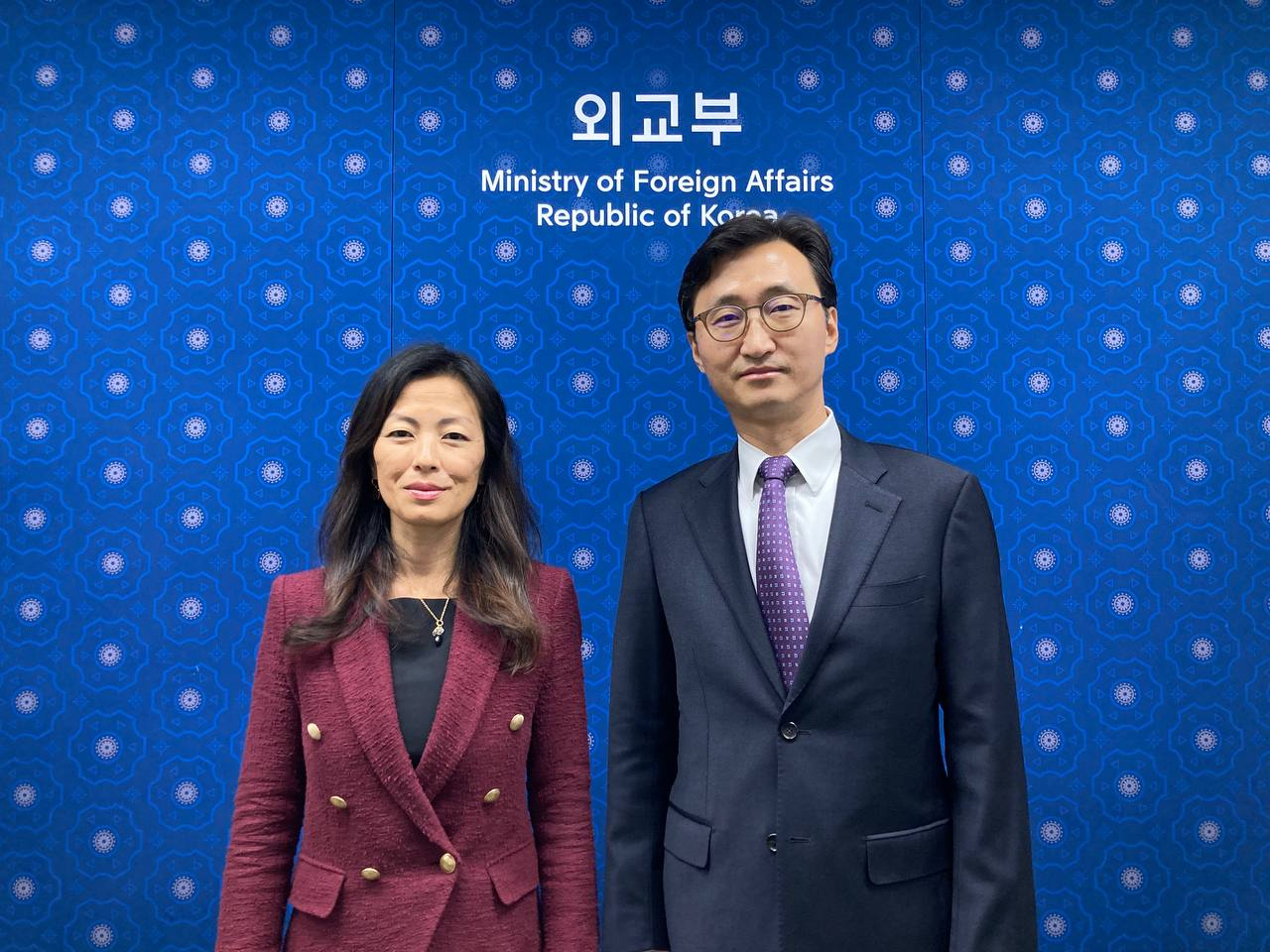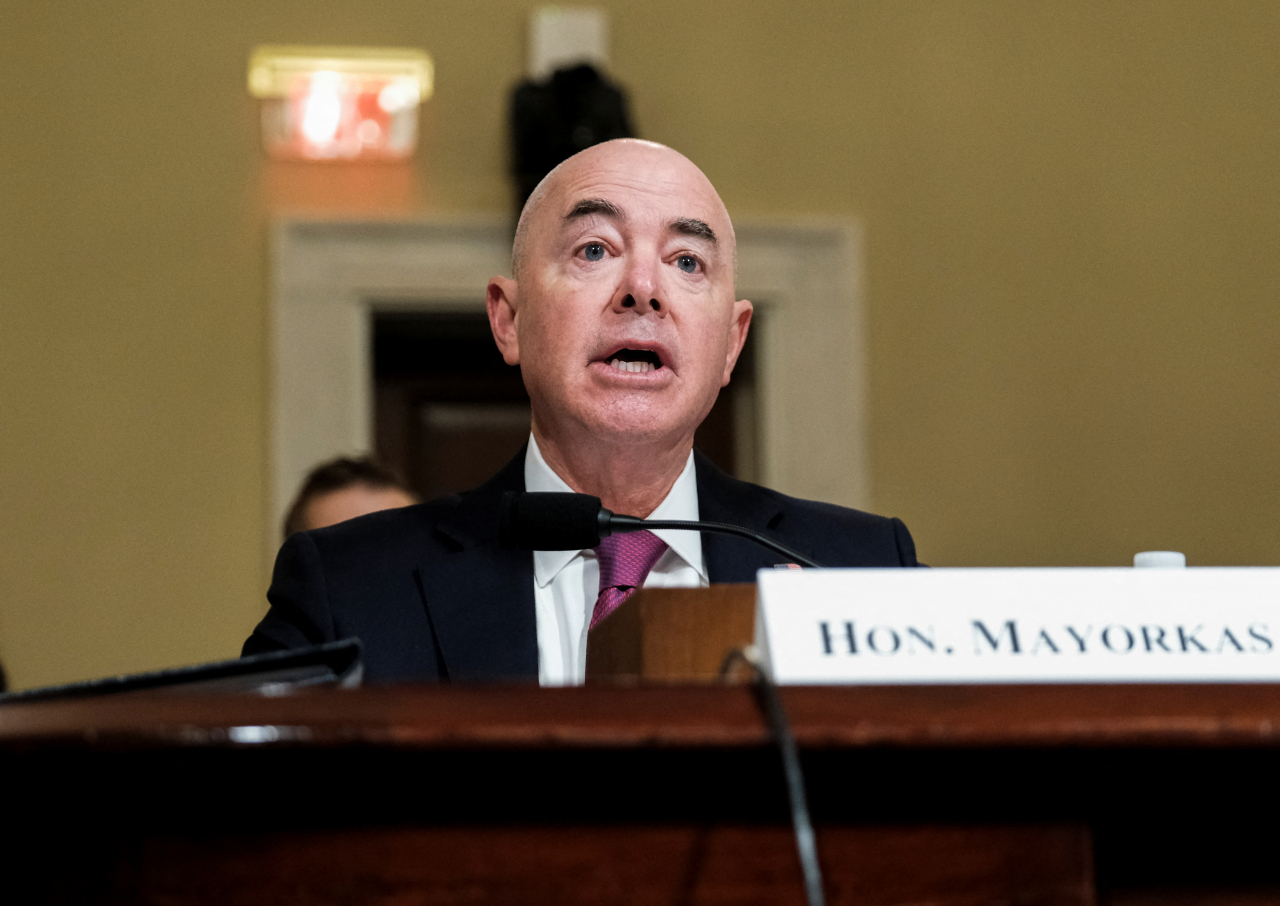 |
Director General for North Korean Nuclear Affairs Lee Tae-woo of South Korea's Foreign Ministry (right) pose with US Deputy Special Representative for North Korea Jung Pak in Seoul on Wednesday. (Ministry of Foreign Affairs) |
South Korea and the United States vowed to strengthen cooperation to counter North Korean threats in cyberspace Wednesday, after news that the reclusive state reaped billions of dollars in cryptocurrency scams to fund its nuclear program.
The two countries held a second working group meeting on North Korean cyber threats in Seoul, the Foreign Ministry said. Some 60 government officials and experts attended the meeting, with Director General for North Korean Nuclear Affairs Lee Tae-woo of Foreign Ministry attending the event as the chief delegate for the Korean side, and Deputy Special Representative for North Korea Jung Pak leading the US side.
The two sides shared their understandings on how North Korea is using foreign currencies earned by the workers it deployed in the information industries in other countries, to develop its nuclear program and missiles, the ministry said.
To stop the North's attempts to secure illegal funds, the two sides agreed to work closely with related industries and the international society to come up with various measures.
The joint working group of South Korea and the US was first formed in August.
North Korea was is observed to have stolen more than $1 billion in cryptocurrencies and hard currencies in the past two years to fund its nuclear weapons program, according to US authorities on Wednesday.
US Secretary of Homeland Security Alejandro Mayorkas made the claim in his written testimony submitted ahead of an annual hearing of the Committee on Homeland Security in the House of Representatives on Tuesday.
 |
US Department of Homeland Security Secretary Alejandro Mayorkas testifies in a House Homeland Security Committee hearing on "Worldwide Threats to the Homeland" at Capitol Hill in Washington, Tuesday. (Reuters-Yonhap) |
“In the last two years alone, North Korea has largely funded its weapons of mass destruction programs through cyber heists of cryptocurrencies and hard currencies totaling more than $1 billion,” the US secretary said in the written statement.
“Hostile nations like Russia, the People’s Republic of China, Iran, North Korea and cyber criminals around the world continue to sharpen their tactics and create more adverse consequences.”
The ransomware attacks target financial institutions, hospitals, pipelines, electric grids and water treatment plants to wreak havoc on daily lives, Mayorkas said.
Citing observations from American authorities, including the FBI, Mayorkas said incidents involving ransomware occurred in 14 of the 16 US critical infrastructure sectors, and victims in the first half of 2021 paid an estimated $590 million in ransom, compared to $416 million over all of 2020.
He warned that the actions of hostile nations exploiting the integrated global cyber ecosystem leads to discord, undermines liberal democracy and erodes trust in institutions, public and private alike.
Christopher Wray, director of the US Federal Bureau of Investigation also said North Korean espionage activities in cyberspace were growing.
“I think North Korea sometimes gets, I think, dangerously so overlooked as a significant cyber threat because we spend so much time very rightly talking about China, Russia and Iran," Wray said in an annual examination from the House Homeland Security Committee of threats facing the US on Tuesday.
"But North Korea has growing espionage in addition to theft and attack capability in some ways, sort of similar to Iran in recent years in particular, and especially targeting, as you say, financial institutions, cryptocurrency exchanges and so forth because they needed to fund their regime because of the effectiveness of the sanctions that are otherwise exist."
Wray also said they are actively investigating some number of North Korean threat actor groups.
Mayorkas touched on how adversaries like North Korea pose an increased threat for the US, especially in a time when the world has seen human and economic devastation from the COVID-19 pandemic.
“Our adversaries are more aware of the significance of biological threats. Additionally, a global desire to mitigate the consequences of future pandemics is likely to expand global interest in leveraging and advancing biological technology capabilities, including technologies used for biosafety and biosecurity,” Mayorkas said.
“The use of chemical agents by Russia and North Korea in targeted attacks outside their borders in recent years reaffirms our commitment to monitor for and defend against similar attempts in the homeland.”
By Jo He-rim (herim@heraldcorp.com)







